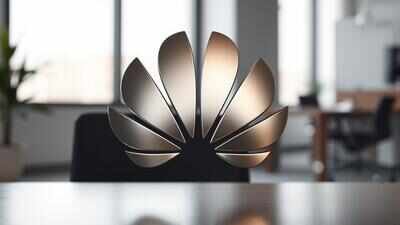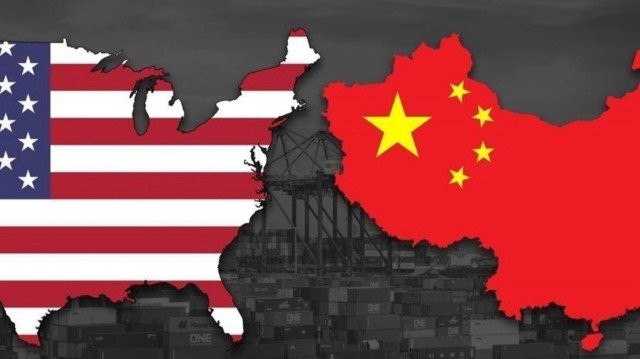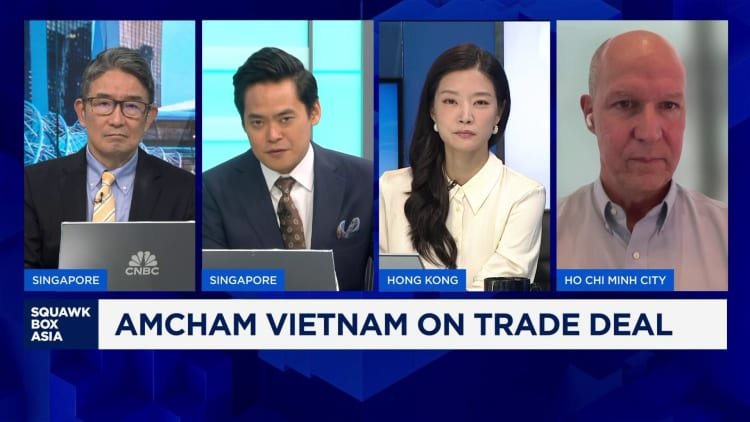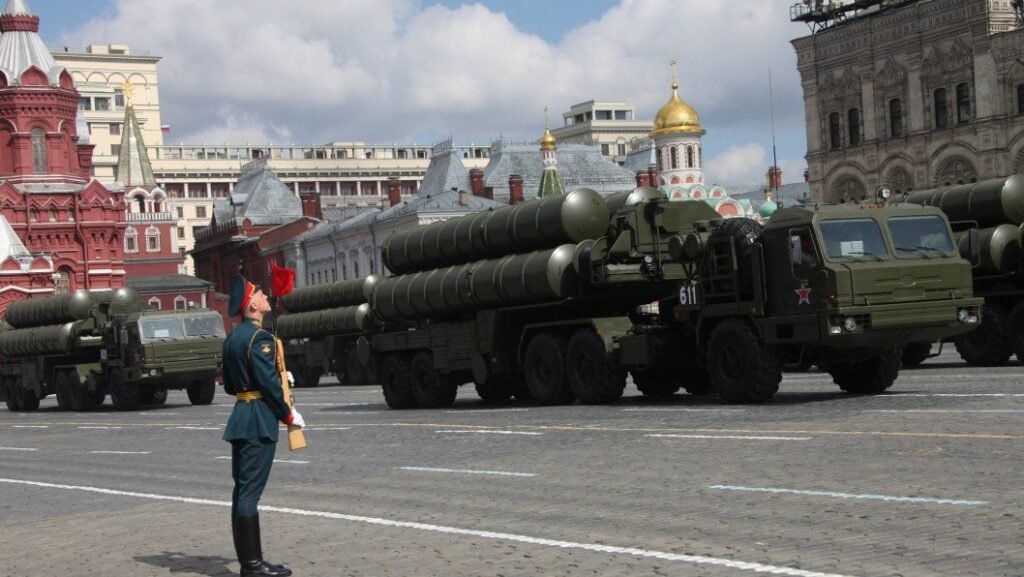Ahead of a July 9 deadline, US officials are deep in talks with major trading partners in Asia and Europe, pushing for new agreements that would include restrictions on Chinese content, or secure commitments to counter what Washington sees as China’s unfair trade practices.
In the first such deal, President Donald Trump on Wednesday announced a tiered tariff agreement with Vietnam. Exports to the US from the Southeast Asian nation will be charged a 20% rate, Trump said in a social-media post, with 40% levied on any goods deemed to be transshipped through the country.
That will hit products with components from China and possibly other nations, which are routed through Vietnam or subject to only minimal final assembly before being exported to the US. The approach mirrors provisions in an existing US trade agreement with Mexico and Canada.
 Bloomberg
Bloomberg
Live Events
Although Trump shared the broad contours of the agreement, the White House has not yet released further details and some of the agreement could be in development, so it’s unknown yet how damaging this could be for China’s growing exports to Vietnam. China’s Ministry of Commerce didn’t respond immediately to a request for comment.
India, another nation seen as close to a deal, has also been negotiating over “rules of origin.” Washington wants at least 60% of a product’s value added locally to qualify as “Made in India” and benefit from the deal, Bloomberg News previously reported. India has pushed to bring that down to around 35%, according to the report.
“Asia’s dilemma when it comes to Trump’s trade war is all about dependence on US final demand while relying heavily on China’s value added in domestic production,” Alicia Garcia Herrero, Asia-Pacific chief economist at Natixis SA, said in a recent report, adding that Vietnam, Cambodia and Taiwan were among the most exposed.
China, a larger trade partner than the US for most Asian economies, has warned of consequences if its interests are threatened, and Foreign Minister Wang Yi is likely to raise that again on his visit to Europe this week for talks in Brussels, Germany and France.“China firmly opposes any party reaching a deal at the expense of Chinese interests in exchange for so-called tariff reductions,” the Ministry of Commerce said in a statement Saturday, repeating earlier warnings. “If this happens, China will never accept it and will resolutely counter it to safeguard its legitimate rights and interests.”
The Vietnam deal risks provoking retaliatory steps from China, according to Bloomberg Economics.
“Beijing has made clear that it would respond to deals that came at the expense of Chinese interests and the decision to agree to a higher tariff on goods deemed to be “transshipped” through Vietnam may fall in that category,” Bloomberg’s Rana Sajedi wrote in a research note.
Trump’s 90-day pause on what he called “reciprocal” tariffs on dozens of America’s trading partners ends on July 9. Unless those countries reach trade deals with the US, they could potentially face much higher tariffs.
Some governments are making moves to stay on the right side of Washington. Vietnam, Thailand and South Korea have all put in place measures to stop goods from being rerouted through their countries to the US since Trump’s tariffs were unveiled in April.
South Korean customs announced a crackdown on transshipments, citing a rise in the practice. Taiwan’s President Lai Ching-te also flagged the issue and followed up with new rules requiring all US-bound exports to carry a legal declaration they were made on the island.
Export Controls
Another concern for Beijing is whether the US could convince others to impose or tighten export controls on high-tech equipment, which would further hamper Chinese efforts to buy the tools it needs to produce advanced semiconductors.
Taiwan in June added Huawei Technologies Co. and Semiconductor Manufacturing International Corp. to its so-called entity list, barring Taiwanese firms from doing business with them without government approval.
The pressure isn’t limited to Asia. Europe, too, finds itself in a delicate position. The EU is China’s largest export destination for electric vehicles, and investment from Chinese firms into the bloc plus the UK hit 10 billion euros ($12 billion) last year, according to recent research from Rhodium Group.
Yet trade tensions are rising. European Commission President Ursula von der Leyen recently accused Beijing of “weaponizing” rare earths and magnets and warned of the risks posed by Chinese overcapacity.
 Bloomberg
BloombergBeijing is particularly concerned that the EU might sign up to provisions similar to those in the UK’s deal with the US, which included commitments around supply chain security, export controls, and ownership rules in sectors like steel, aluminum and pharmaceuticals. While the language did not name China, Beijing criticized the agreement in a rare public statement, interpreting it as a direct challenge, the Financial Times reported.
“China is clearly worried that the EU will accept the same wording as the UK did on export controls,” said Joerg Wuttke, a partner at the Albright Stonebridge Group in Washington and former president of the EU Chamber of Commerce in China. “They are pushing the EU not to do this, and the US is pushing the EU to do it.”
 Bloomberg
BloombergBrussels and Washington are aiming to reach some form of an agreement before July 9, when Washington is set to impose a 50% tariff on nearly all EU products. With European exports to the US worth more than double the amount to China, the bloc sees Washington as the more important partner, giving the US leverage in the talks.
China’s weekend statement is “obviously aimed entirely at Brussels,” said Hosuk Lee-Makiyama, director of the European Centre for International Political Economy in Brussels, who was recently in Beijing for meetings ahead of an EU-China summit this month. “China is concerned what the EU might agree with the US.”
The long-term risk for Beijing is that these efforts coalesce into a broader shift — not just a US-led campaign to curb Chinese exports, but a reshaping of global trade around “trusted” supply chains, with China increasingly on the outside. In a visit to Southeast Asia earlier this year, President Xi Jinping urged the region to stand together as an “Asian family,” warning against trade fragmentation.
Beijing has often responded to actions it opposes with targeted trade measures. When the EU imposed tariffs on Chinese electric vehicles last year, China launched anti-dumping probes into European brandy, dairy and pork. It halted Japanese seafood imports in 2023 after Group of Seven meetings in Japan were seen as critical of China. A spat with Australia in 2020 led to trade restrictions on billions of dollars’ worth of goods, including lobsters, wine and barley.
“If some agreements explicitly list China as a target and show that some countries are cooperating or collaborating with the US to ‘contain China,’ then China will definitely respond,” said Tu Xinquan, dean of the China Institute for WTO Studies at the University of International Business and Economics in Beijing and a former adviser to the Chinese Commerce Ministry.








